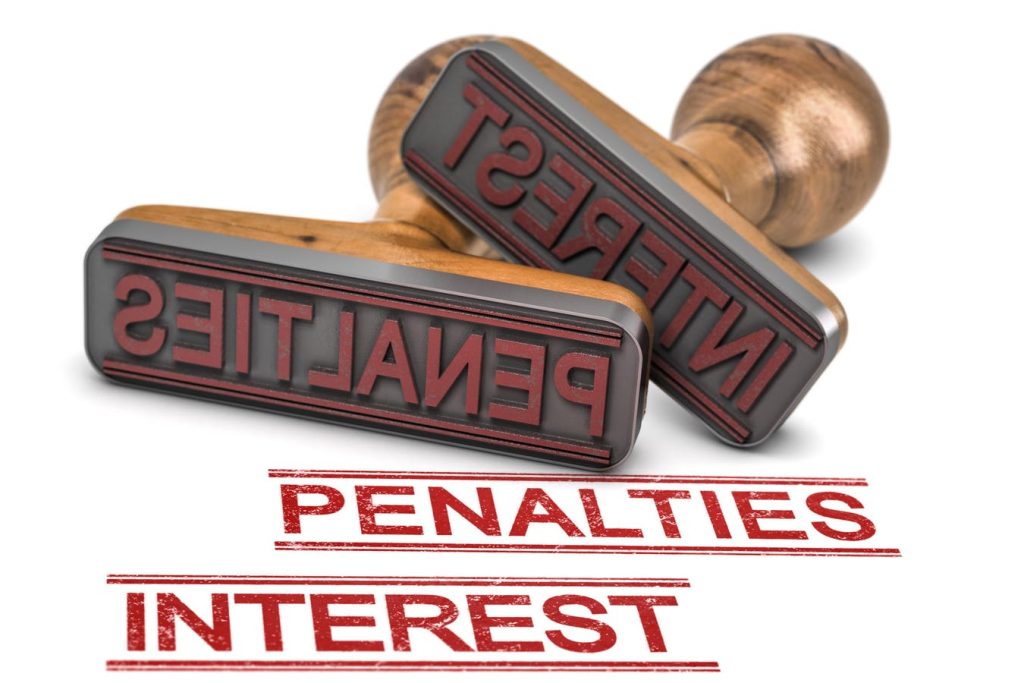The D.C. Circuit Court issued a ruling today that the IRS does have the authority to assess foreign information return penalties. The ruling was unanimous, 3-0, with Circuit Judge Pollard writing, “We hold that the text, structure, and function of section 6038 demonstrate that Congress authorized assessment of penalties imposed under subsection (b), and so reverse and remand to the Tax Court with instructions to enter decision in favor of the Commissioner.” In Farhy, the taxpayer was required to report his ownership interests in foreign corporations. Specifically, he was required to file Form 5471, Information Return of U.S. Persons With Respect to Certain Foreign Corporations—failure to do so can result in significant penalties until section 6038(b). Farhy did not timely report, and the IRS assessed penalties under section 6038(b)(1) of $10,000 each year. The IRS also assessed continuation penalties under section 6038(b)(2) totaling $50,000 for each year at issue. The continuation penalty is $10,000 for each 30 days the taxpayer doesn’t comply after an initial 90-day notice period, subject to a maximum of $50,000. Farhy didn’t dispute that he did not file nor that he had not paid. Instead, he challenged whether the IRS had the legal authority to assess section 6038 penalties. Ultimately, the question wasn’t whether the penalties were included in the statute (they are) but whether the IRS can assess and collect those penalties by administrative means. The Tax Court didn’t buy the IRS’ argument that it has the authority to levy those penalties systematically, nor that the agency didn’t need to take additional steps, such as civil litigation, to collect. “Simply put,” the Court wrote, “while section 6038(b) provides for penalties, it does not provide for assessable penalties.” With that, the Tax Court gave Farhy a win, ruling that the IRS could not collect from him in this instance—the IRS had no statutory authority to assess penalties under section 6038.
The Circuit Court noted that it reviewed the Tax Court’s legal rulings de novo—that’s Latin for “from the beginning.” When a court hears a case “de novo,” it will decide the issues on its own, without giving deference to the lower court’s ruling (though it may refer to the record to determine the facts). On appeal, the court found that the text of section 6038 does not explicitly say whether the penalties imposed for violating section 6038(a) are assessable. Farhy had argued that a penalty must be explicitly characterized as a “tax” or designated as “assessable” elsewhere in the tax code for the IRS to assess it per section 6201(a). Further, he had claimed that section 6201(a)’s reference to “assessable penalties” implied that some penalties are not assessable, including section 6038(b) penalties among them. The appellate court disagreed with Farhy, finding that “[a] close reading of section 6038 with an eye to the role of subsection (b) within it reveals that the Congress that amended the Code in 1982 intended the subsection (b) penalty to be assessable.” Otherwise, the court noted, if subsection (b) penalties were not assessable, the IRS could not collect them at all without going first to court in each and every case. That, the court said, doesn’t make economic sense (the penalties are generally $10,000 a pop). The Circuit Court found the idea that section 6038(b) penalties are assessable was “buttressed by more than forty years of congressional acquiescence to the IRS’s practice of assessing” those penalties. The opinion went on to note that since adding subsection (b) in 1982, Congress has amended section 6038 seven times—each time, it has left undisturbed the IRS’s practice of assessing and administratively collecting penalties imposed under section 6038(b). Eric Rietveld, a tax planning and controversy attorney at Sullivan & Worcester, in their Boston office, says that he thinks it’s a good ruling in that “it didn’t give either party exactly what they were looking for.” Farhy, of course, lost. But the appellate court didn’t exactly rubber stamp the IRS’ ability to assess penalties at will. The opinion, says Rietveld, seems to have “sensibly struck a pretty good medium line.” Is it a green light for the IRS to move ahead without impunity? Rietveld suggests that taxpayers don’t necessarily need to worry, noting that the original Farhy ruling didn’t prove to be a hard stop on what the IRS was doing already. However, to the extent that taxpayers were waiting on the outcome of Farhy to decide whether to come forward, he says the ruling now “might be a further call to come into compliance.”
Last month, the Tax Court relied heavily on Farhy when it heard Mukhi v. Commissioner of Internal Revenue. The question raised in Mukhi, a collection due process case, was similar to that in Farhy—and the Tax Court said at the time that it wasn’t willing to deviate from that ruling. It is unclear how this most recent opinion will impact Mukhi and similar cases, however, Rietveld suggests that to the extent that the IRS lost any of those cases (as they did in Mukhi), they’ll definitely be looking to push back if the Court had been relying on the arguments put forth in Farhy. And, for now, we don’t have a circuit split, which Rietveld says means it’s not likely to end up in the Supreme Court. “I think as it applies to IRS’ enforcement ability with respect to the penalties,” Rietveld said, “it should be a pretty good nail in the coffin.”














